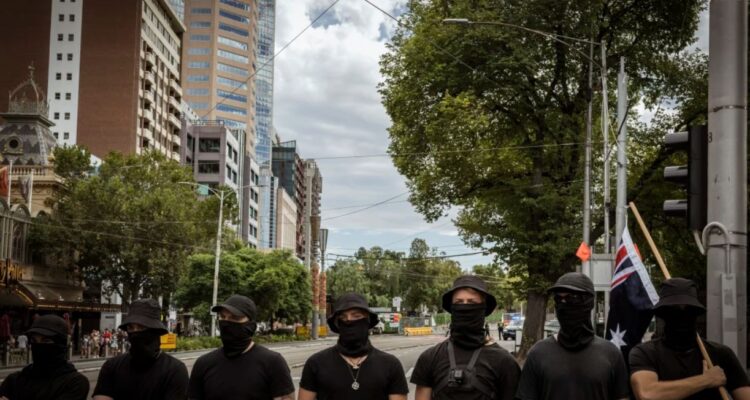Banning the Nazi salute will not do anything to decrease anti-Semitism, the hateful targeting of LGBTQ communities or counter right-wing and fascist extremists. If anything, it may make matters worse.
This is not an easy argument to make after the confronting displays on the steps of Victorian state parliament last week. We should demonstrate solidarity with those targeted by extremists, but we must also consider whether these bans would even be effective as well as the broader consequences.
It may seem like a powerful statement, but it’s actually just an opposing symbolic gesture that does not address the intention behind the use of hateful symbols.
Germany has longstanding laws that ban “symbols of anti-constitutional organisations” including the swastika and SS insignias. The Nazi salute and the declaration of “Heil Hitler” are also banned in public spaces.
They have been banned since the 1950s, but Germany retains a serious problem with neo-Nazis. In fact, right-wing extremism has been on the rise in Germany, reaching a two-decade high in 2021. In December, German security forces arrested more than two dozen people for an expansive plot to overthrow the state. The German security services are themselves grappling with a significant insider threat from neo-Nazis. Clearly, banning symbols and salutes is not addressing the problem.
Read the article by Lydia Khalil in The Sydney Morning Herald.

